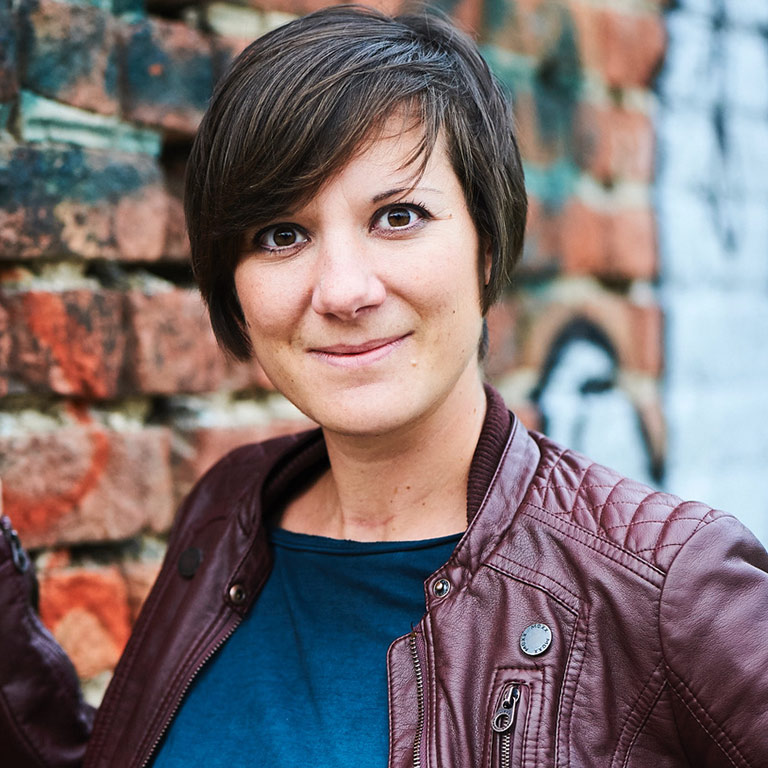Dr. Teresa Kovacs’ new course GER-E 121 Putting Democracy to the Test examines the role of performances in maintaining democracy and countering totalitarianism and fascism. An interview with Dr. Teresa Kovacs, a professor in the Department of Germanic Studies, is below.

Why did you choose to teach a class on the role of performance as resistance to nondemocratic governments?
Kovacs: Theater and performance have a long tradition in reflecting different forms of government but also actively stimulating discussion on what the best form of government could look like. Western theater traces its roots to Ancient Greek Tragedy and Comedy. As we know, those plays deeply engage with democracy. They ask and put to the test what “demos” can mean and how the people can articulate their will. This is most palpable is Aeschylus’ tragedy “The Suppliants” (470 BC). In this play, the fleeing Danaids seek asylum in Argos and King Pelasgus starts an interrogation with his citizens to decide whether they are allowed to stay or have to leave.
It isn’t surprising that theaters in Germany staged exactly this tragedy in 2015, when the “migration-crisis” challenged established democracies and helped far-right parties and movements to a rise.
The important role theater played in Europe’s migration crisis and in resisting anti-democratic movements made me decide to teach this class. Starting from current productions, we will trace how performance resists in the German-speaking world since 1945. We will encounter performances that opposed hidden structures of the Nazi-regime after 1945, East Germany’s repressive Communist government, and the current rising of the “new right.”
Western theater traces its roots to Ancient Greek Tragedy and Comedy. As we know, those plays deeply engage with democracy. They ask and put to the test what demos can mean and how the people can articulate their will.
Why is it important for students to take this course? What knowledge or skills do you hope they gain?
Kovacs: I hope that the students who take this class will be inspired by the power of artistic projects as a form of resistance. All too often we reduce art to entertainment. We see it as a mere vehicle for distraction opposed from real life. On the example of theater and performance’s interrogation with democracy my students will gain a more complex understanding of the role of theater, but also of art in general in our society.
I hope that the students who take this class will be inspired by the power of artistic projects as a form of resistance. All too often we reduce art to entertainment.
What type of students would you encourage to take this course?
Kovacs: This course speaks to a wide range of students. It can serve as a basic introduction into performance and democracy for those who have never before engaged with it but it will also bring new insights for those who regularly engage with this art form. Important is curiosity and openness for the unconventional. The performances we will discuss all have to be considered experimental or avant-garde -- they transgress existing categories and convention and challenge conventional taste.
Are there any assignments that you are particularly excited about?
Kovacs: I am particularly excited about the final project for this class – instead of writing an exam or a final paper, I want the students to create a performative work that engages with democratic practices and that functions as an intervention in our town.
What’s one conflict or threat to democracy that you plan to discuss in the class?
Kovacs: One important threat to democracy we will discuss is the years 1999 and 2000, when in Austria a far-right party got the second most votes and formed together with the conservative party the new government. That a far-right party was for the first time after 1945 part of the government was a huge shock, not just for Austria, but world-wide. Other countries reacted with sanctions and Austria was closely observed by an international board to guarantee that democracy is not subverted by the new government. Another conflict we will engage with is the so-called migration crisis from 2015 that was instrumentalized by governments in Europe to pass nondemocratic legislation. Both events inspired critical performances and theater started to reflected its own role in the twenty-first century based on those political threats.
How can one not focus on performance and theater when discussing anti-democratic movements?
Why focus on performance and theater when discussing anti-democratic movements? Did a particular work inspire you?
Kovacs: I hope that by the end of the semester all of my students ask “How can one not focus on performance and theater when discussing anti-democratic movements?” I grew up in Austria, where theater and performance were crucial to challenge anti-democratic tendencies. While political parties tried to avoid discussions about the continuation of Austrofascism or the Nazi-regime, directors and playwrights where the first one pointing to those hidden structures. The most important public discussions about Nazi legacy were caused by plays that premiered in the 1980s. Facing the new challenges of a rising far-right after 1989, Schlingensief’s Please Love Austria (2000) is the most intriguing example for how successful theater can protest anti-democratic movements. His performance was part of the demonstrations against Austria’s far right government in 2000 and got a lot of public attention.
Could you talk about what you mean by transnational and transcultural in the context of this course?
Kovacs: I want my students don’t just gain insights in forms of resistance through performance, but I want them to understand that theater and performance also experiments with alternative forms of community-building and world-making. Theater transgresses national and cultural borders and allows us to experience new modes of living together and creating a “we” that does not define itself by the exclusion of the “Other.”
Learn about the Democracy minor
Photo credit (banner): dou_ble_you, Flickr Creative Commons, CC BY-NC-ND 2.0


 The College of Arts
The College of Arts